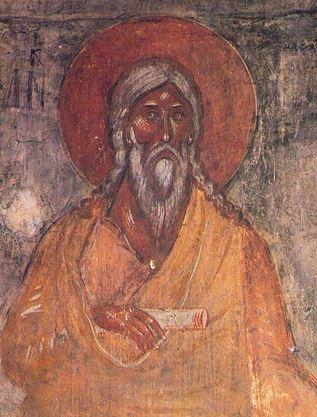
In the Bible, Seth is the third son of Adam and Eve. His story is briefly mentioned in the Book of Genesis (Genesis 4:25-26), and he is an important figure in the genealogical line that leads to Noah and ultimately to all of humanity.
Key Aspects of Seth in the Bible:
-
Birth and Significance:
-
Seth was born after the tragic murder of his brother Abel by their older brother Cain (Genesis 4:8). After Abel's death, Adam and Eve were left without a righteous son, but with the birth of Seth, they saw hope for the continuation of the godly line. Eve expressed this significance when she named him "Seth," saying, "God has appointed for me another offspring instead of Abel, for Cain killed him." (Genesis 4:25).
-
-
Seth as a Replacement for Abel:
-
In many ways, Seth is viewed as a replacement for Abel, who was killed by Cain. While Cain's descendants were associated with sin and violence, Seth's descendants were seen as carrying on the righteous lineage. This contrast highlights the idea of divine restoration—where God provides another opportunity for righteousness through Seth.
-
-
The Lineage of Seth:
-
The genealogy of Seth is important in the Bible because it represents the continuation of God's promise to Adam and Eve. From Seth’s descendants came the righteous line that eventually leads to Noah, who was chosen by God to survive the flood and preserve humanity. Seth's line contrasts with Cain’s line, which is associated with wickedness and rebellion.
In Genesis 5, the Bible gives a genealogy of Adam’s descendants, which traces through Seth all the way down to Noah:
-
Adam → Seth → Enosh → Kenan → Mahalalel → Jared → Enoch → Methuselah → Lamech → Noah.
-
-
Seth's Role in the Development of Human Civilization:
-
The Bible mentions that during the time of Seth's descendants, people "began to call upon the name of the Lord" (Genesis 4:26). This is interpreted as the beginning of a more organized worship of God, indicating that the people in Seth's line were more devoted to the worship of the one true God, in contrast to the descendants of Cain.
-
-
Seth’s Death:
-
The Bible does not record much about Seth’s life or death, and he is not as prominent as figures like Adam, Noah, or Abraham. Genesis 5:8 simply states, "Altogether, Seth lived 912 years, and then he died."
-
-
Legacy and Theological Significance:
-
While Seth himself is not the focus of many stories in the Bible, his role in the divine plan is significant because he represents the continuation of humanity after the fall. His descendants, through Noah, are the ones that preserve the human race through the flood. Theologically, Seth symbolizes God’s provision and faithfulness in maintaining a righteous remnant even after the fall of man and the violence of Cain.
-
In Summary:
Seth’s role in the Bible is as the godly son who replaces Abel and through whom the righteous line continues. His descendants are marked by their worship of God, and they form the line from which Noah and, ultimately, all of humanity descend. Although not a central figure in the Bible, Seth’s importance lies in his place in the genealogical line leading to the preservation of life through the flood.

